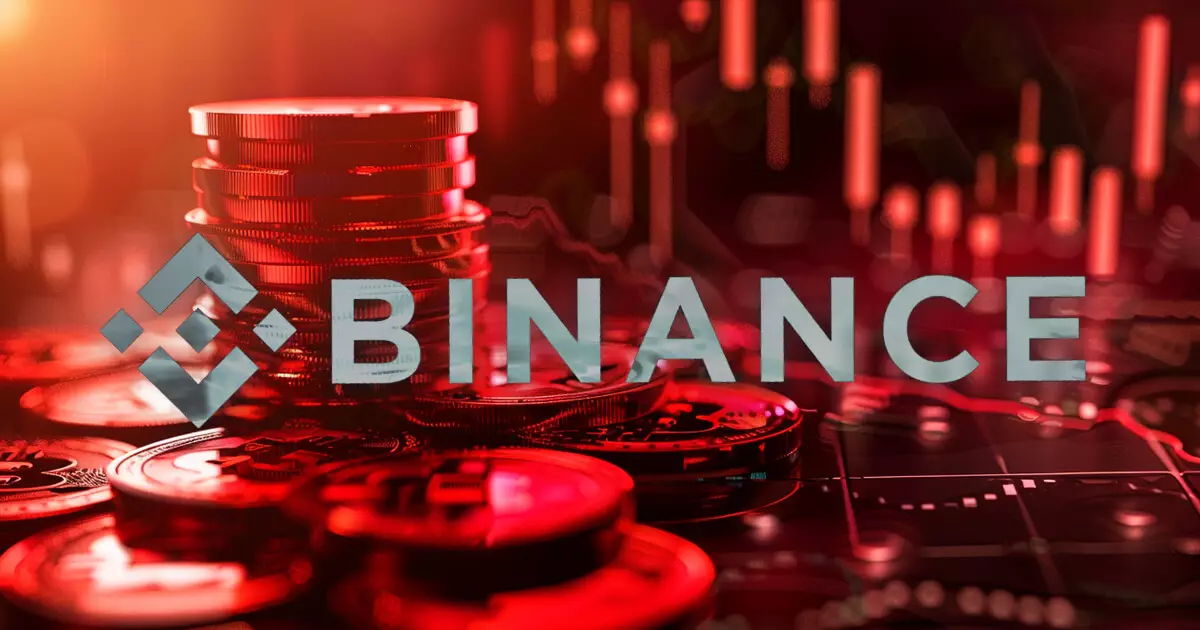In recent weeks, the cryptocurrency landscape has been tumultuously shaken by Binance’s listings of two Solana-based memecoins: The AI Prophecy (ACT) and Peanut the Squirrel (PNUT). As exemplified by their abrupt introduction on the world’s largest crypto exchange by trading volume, this action has raised significant eyebrows among community members who suspect that these listings may be part of a larger scheme to facilitate price manipulation. Observing how these low-market-cap coins soared in value almost instantaneously following their listing, the crypto community has mobilized to scrutinize Binance’s practices and policies.
Shortly after Binance announced the listings, ACT experienced a mind-boggling increase of over 1,000%, catapulting its market capitalization to more than $400 million. In parallel, PNUT capitalized on the viral success of the internet character it represents, soaring in value by approximately 100%. This extraordinary rise in price has scared many observers into thinking that Binance is exploiting its considerable influence in the market to artificially inflate token prices for quick profits. While memecoins have long been known for their volatility and whimsical appeal, such drastic spikes in market caps following an exchange listing tend to echo slogans of manipulation rather than legitimate trading.
A critical player in this discourse has been Leonidas, the co-founder of Ord.io, a Bitcoin Ordinals explorer. His petition criticizing Binance’s memecoin listings argues that these strategic introductions provide opportunities for a “pump and dump” scenario, ultimately disadvantaging retail investors. As he cites, the convenience of listing “dead” memecoins—coins with minimal prior activity that are controlled by a small pool of insiders—suggests a troubling dynamic where a few key players benefit at the expense of the broader community.
The implications of Leonidas’s allegations are significant. If Binance indeed favors low-cap tokens controlled by a few insiders who can efficiently pay the platform’s listing fees, the trust essential to the cryptocurrency ecosystem could be severely undermined. Transparency is paramount in the crypto space, and Leonidas’s call for Binance to make public its listing fee structures indicates a growing demand for accountability.
He urges Binance to clarify not only the financial details of its listings but also to disclose whether any fees are accepted in tokens or whether planned token sales are involved. This plea for greater transparency reflects a wider apprehension within the community regarding opaque practices that might further skew the market in favor of insider trading.
In the broader context, comments from Loopify, a crypto game studio founder, generate a compelling discussion point about Binance’s evolving listing standards. Historically, the exchange was known for its rigorous vetting processes, ensuring that token listings were well-founded and credible. However, there appears to be a marked shift as the exchange has been more willing to entertain the listings of rapidly appreciating memecoins.
Data from on-chain analyst Ai_9684xtpa could further cement concerns about the potential lack of rigorous oversight. An analysis revealed that 80% of the memecoins listed by Binance in 2024 experienced notable price increases post-listing, with over half of these coins originating from the Solana network. This trend underscores the fact that community interest and popularity might be trumping conventional measures of value and credibility in Binance’s listing criteria.
In sum, the concerns raised around Binance’s swift inclusion of Solana-based memecoins reflect a deeper issue regarding the ethical standards upheld by major cryptocurrency exchanges. With retail investors increasingly reliant on such platforms, the necessity for greater transparency and accountability cannot be overstated. If Binance maintains its current trajectory without addressing these concerns, the resulting financial repercussions could extend beyond individual investors, potentially jeopardizing the broader credibility of the cryptocurrency market. As the community continues to grapple with these developments, it is imperative for exchanges to foster a more equitable environment where investor protections are prioritized, giving all users a fair fighting chance in the rapidly evolving world of digital currencies.














Leave a Reply